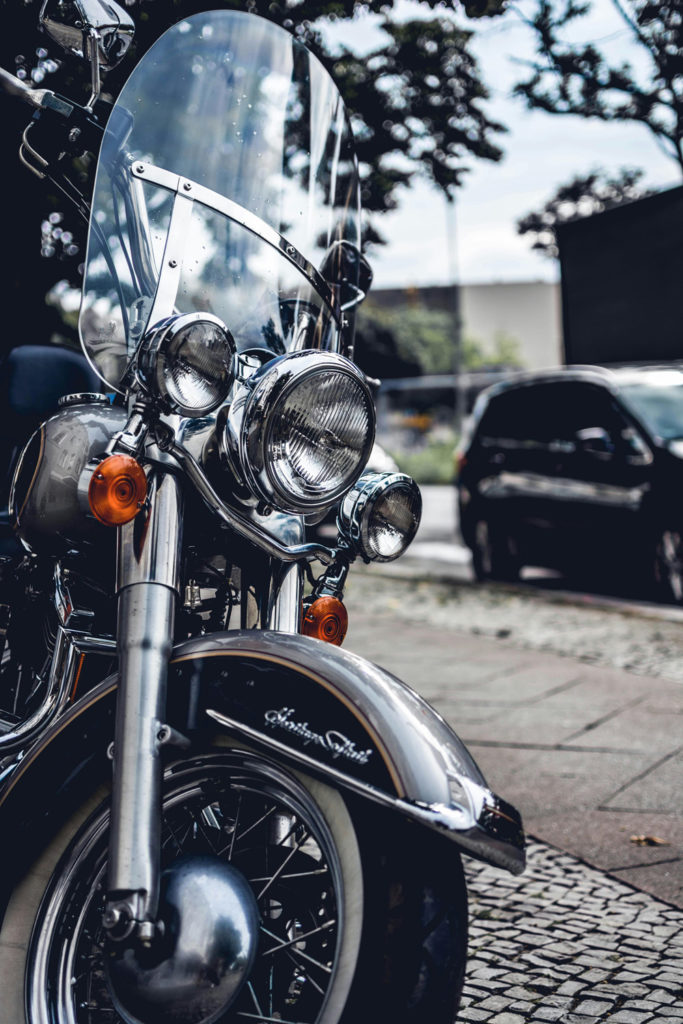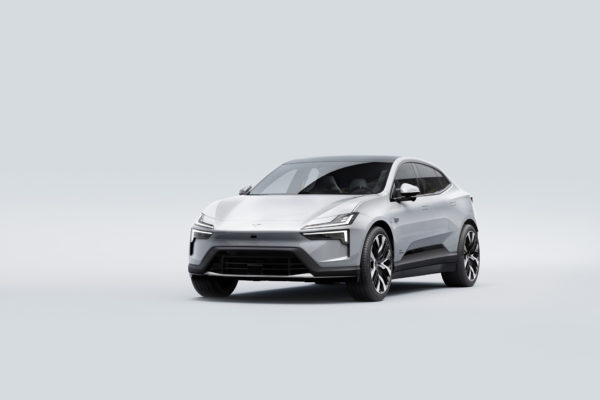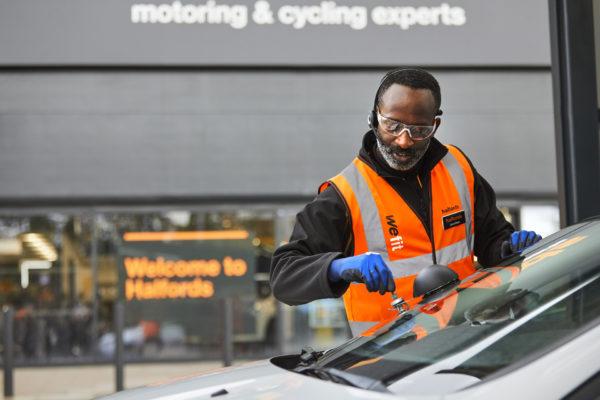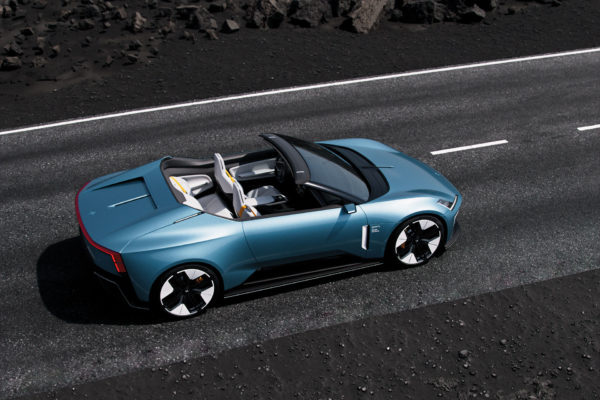My Little Green Book: Fredrika Klarén, Polestar’s Head of Sustainability
By
2 years ago
Fredrika Klarén discusses the push for sustainability in the automotive industry
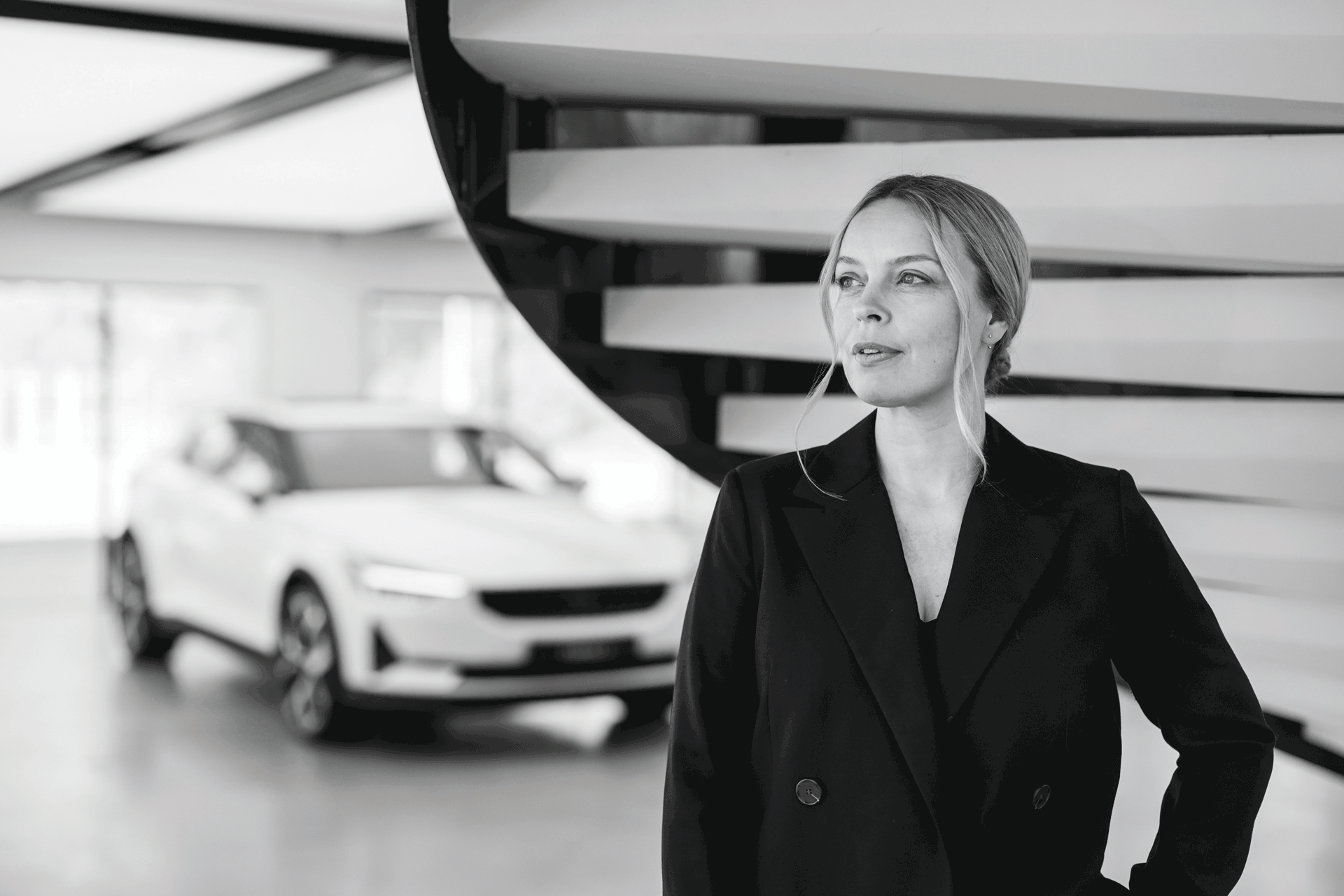
Lisa Grainger speaks to Polestar’s head of sustainability, Fredrika Klarén, about creating a better future for people and planet.
My Little Green Book: Fredrika Klarén, Polestar’s Head of Sustainability
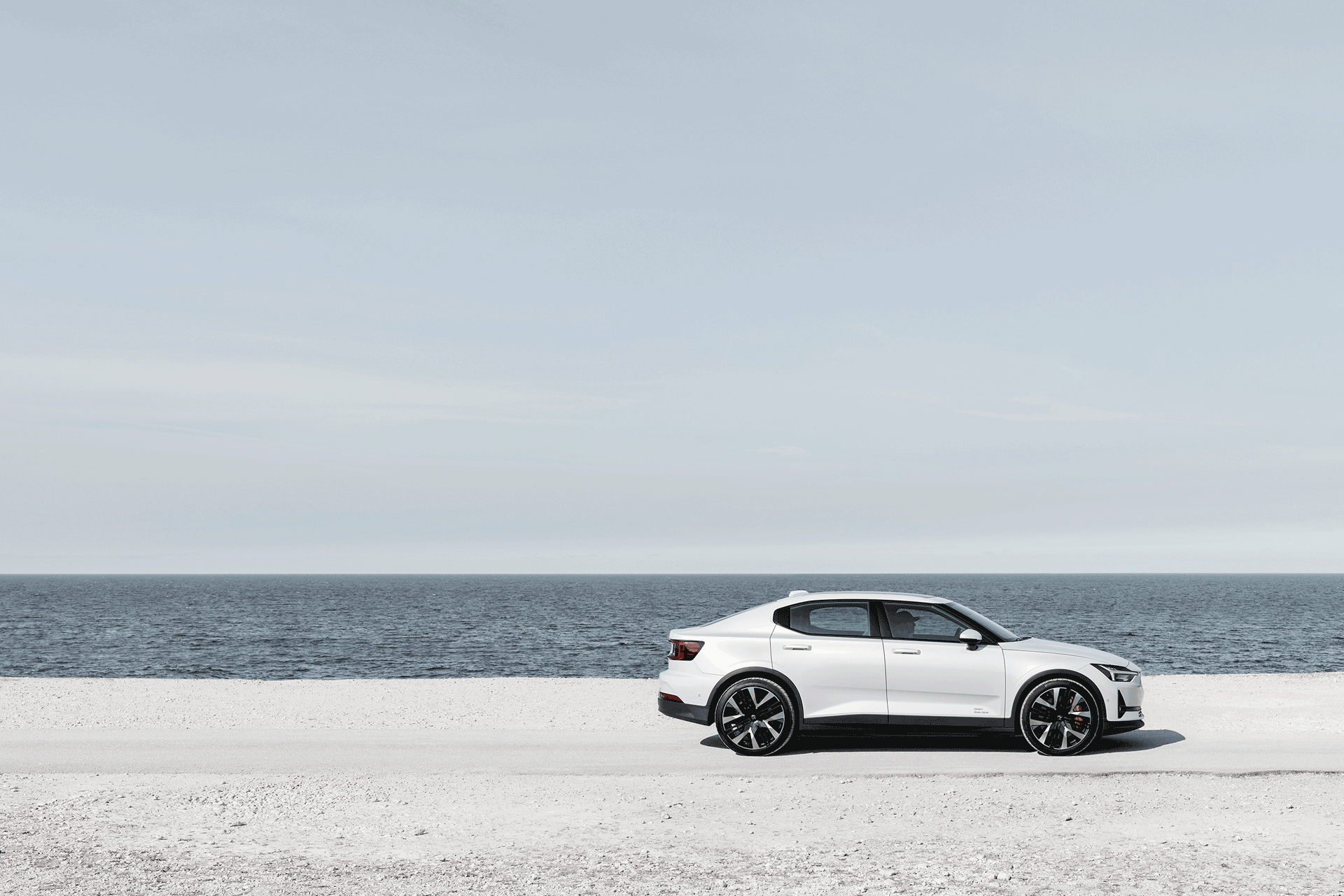
Every Polestar car comes with a Lifecycle Analysis report that shows its carbon footprint.
Cars and sustainability aren’t words that normally go together very well. Almost a fifth of all carbon emissions comes from transport – and three-quarter of that is emitted by cars. So when one of Sweden’s leading sustainability advocates, Fredrika Klarén, starts to wax lyrical about driving, it comes as a bit of a surprise. ‘I love cars: the design, the performance,’ she says. ‘I get such pleasure out of mine: looking at it, driving it.’ That’s not only because the 44-year-old has long been what she calls a ‘EV geek’. But because she drives what she believes is one of the most beautiful green cars on the planet, the Polestar 2.
As the head of sustainability for the six-year-old, Swedish EV manufacturer, and one of the leading lights in the drive to make mobility greener worldwide, Fredrika Klarén is pragmatic about car use. People want the safety, convenience and comfort of cars, she says; there are currently 1.1 billion, or a car for every 7.8 people. The aim is to make them as clean and green as possible. ‘You have to build cars that live longer lives, that are used more, that are shared between people,’ she insists. ‘Cars designed for circularity, for long life, for high utilisation.’
Although, she admits, in a world with over eight billion people riven with inequality – with 710 vehicles per 1,000 people in America, and 0.5 per 1,000 in Africa – private car ownership is only part of a bigger picture. ‘Cars are part of an interconnected system in which public transport is hugely important, alongside cycling and walking. They all work in harmony; they all play their roles,’ she insists. That’s because they have to be, she says passionately. ‘As the world heats up, we can’t afford to open more coal plants and keep buying petrol. All of our lives are at stake. We have six years till we hit 1.5 degrees warming – or maybe sooner. Then we will set in motion catastrophic events.’
Having worked previously at Ikea and the fashion retailer KappAhl, Klarén has been able to see first-hand the impact that manufacturing has on our world – whether that’s cutting down trees for flatpacks, producing fabric for fashion or extracting metals for cars. Most companies, she says, clearly exasperated, are reluctant to be transparent. What that leads to is ‘people being exploited in supply chains all over the world and non-transparent ways of working that are ingrained. When you look at metals and minerals, for instance, corruption is one of the main hinders for progress.’
At Polestar, she insists, transparency is at the heart of the business – every car comes with a Lifecycle Analysis report that shows its carbon footprint, from supplies to manufacturing and recycling. By 2030 the company has set itself the ambitious task of producing Polestar 0, a car that is totally carbon neutral, without offsetting. Each of the 50,000 parts, she says, will be made by suppliers governed by a strict code of conduct and audited; already, for metals like lithium, cobalt, nickel and mica, the company has set up blockchain traceability. Its launch, she says, is driving everyone. While the CEO of its competitor, Tesla, focuses on Mars and Twitter, the production of Polestar 0 ‘is like going to the Moon. No one thinks we can do it. But we have to’.
En route, she says, they will share whatever they learn – so that other manufacturers can follow. At COP26 in Glasgow she was horrified to learn that only 1.5 per cent of the world’s cars are electric. That means, according to a Pathway Report they commissioned with the American vehicle company Rivian, the automotive industry is set to overshoot the 1.5-degree pathway by at least 75 per cent by 2050. ‘So we need to communicate and collaborate,’ she says. ‘We need to change.’ To stay within the carbon budget, she says, the industry has to do three things within the next decade: ‘to fully transition to only selling EV, to scale up renewable energy production to 100 percent, and to decarbonise our supply chains by 81 percent.’

Polestar’s commitment to its carbon reduction journey is set in stone.
All of which Polestar is working towards, she says. The company already has three big battery recycling centres – in China, Europe and America. They work with innovative companies, from Pensana mineral extraction in the UK, which mines using hydroelectricity, to a Swedish company called PaperShell, which makes high-tech materials from wood. And its two factories in China, she insists, are role models for other manufacturers. ‘The plant in Chengdu was the first in China to get LEED Gold Certification. And my Chinese colleagues are guiding stars when it comes to sustainability. They want to make a change; they are so impacted by pollution.’ Opening a new car factory in the US in 2024, and situating its R&D plants in Nuneaton in the UK, employing 400, she hopes, will help drive its sustainability ethos into other countries, too.
Growing up on a tiny car-free island outside Gothenburg in Sweden – the city in which she still works – taught her so much, she says, about ‘how we are dependent on nature being in balance for all the ecosystem services we need. But also, growing up on a small island you also understand the importance of community and collective progress, as opposed to individual progress. That, more than anything, has made me want to work in sustainable development. I have it in me, with me, from my upbringing.’ Being raised by a single-parent father who uses a wheelchair also gave her other insights and strength, she says. What he taught her, she says, ‘is going full speed ahead on being myself. And showing me resilience. I’ve seen how you can persevere through all sorts of challenges if you have the right mindsets and the right support.’
But even in Sweden, which is famously progressive, businesses, and in particular the automotive world, are still dominated by men, she says. ‘We have come a long way, and we should give thanks to the women who went before us – who fought so hard for my rights. But we are not where we need to be. We still have a huge wage gap between men and women – and gaps in the LGBTQ communities and people of other ethnicities. So we have to keep our eye on the ball.’
What she has learnt, she says, both from her degree in civil engineering, in which she focused on environmental systems analysis, and her career, is that ‘it’s important to take charge of how you want to live your life. We all feel powerless because we are in a rampant crisis and no one is taking control. But you have a choice: to freeze or take the power back.’
At home, she and her husband created a climate plan in which they wrote a list of things they needed to change in their lives. They installed solar panels on the roof, promised never to drive a fossil-powered vehicle again, stopped eating meat regularly, increased the second-hand share of what they buy, and decided to fly as a family only once a year. ‘I still worry a lot,’ she says, shrugging, ‘but I am doing what I can.’
The next generation, she suspects, will be more hard-core in their decision-making. Although her daughter is 16, and learning to drive, ‘she will never, ever, drive a petrol or diesel car, my kid. I am not sure she will even own her own.’ Instead, she says, she’ll probably car-share: ‘get a car from a car pool when she needs one. Or rent one if she’s abroad. Or use an app to share.’ What’s certain is that her daughter will have a hugely informed mother to turn to for advice – a woman who’s made it her mission to ensure more of us understand the impact of our lives on our planet. Which is a pretty good start.
Featured image credit: Polestar

